
There's so much more to health tech than wristbands
The technology and health arena has seen massive growth over the last couple of years. Wristbands are everywhere you look. Mobile phones are getting pedometers. Apps that can monitor activity abound. We're becoming a society which is focused on the concept of wellness. Heck, even Apple, the great god of all things stylish, might be getting in on the act.
But the relationship between technology and health goes a lot further than a wrist or pocket-friendly gadget that can count your steps.
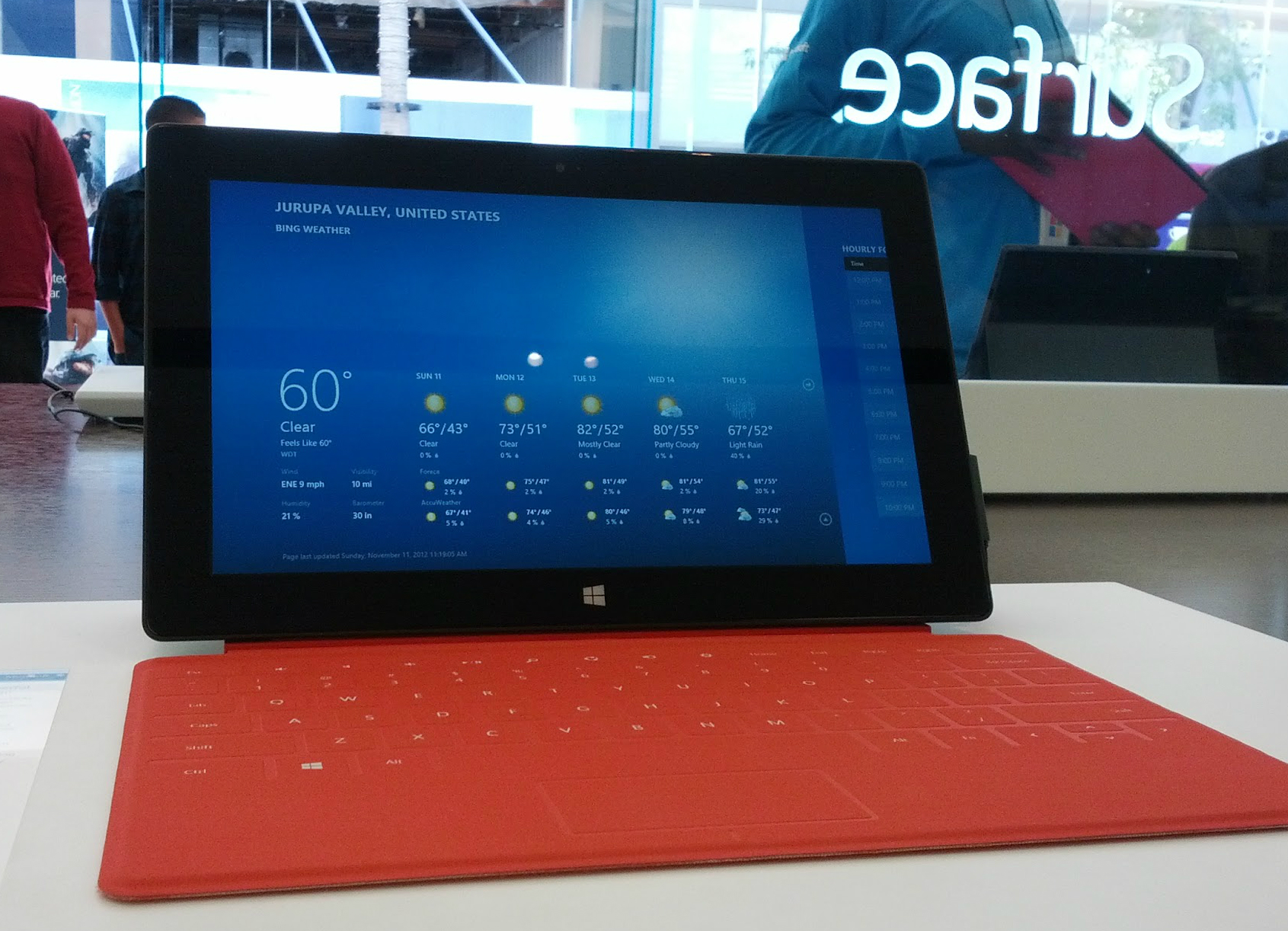
Microsoft breaks the Surface tension
First in a series. My preference is to write about tech that I use -- an attitude shared among BetaNews reporters. We like to get hands-on and write with authority, from experience. That's one reason I write so little about Microsoft now, not being immersed in the company's products. Lately, mine is the Google lifestyle.
But yesterday I started using the original Surface -- the one frequently maligned by critics for so-called limitations associated with Windows RT. This is my first experience with the tab, although I reviewed and frankly loved Surface Pro. Out-of-the-box impressions are great. This is a hugely satisfying tablet, and surely the experience is better with its successor. I was right to ask 5 days ago: "Why not Surface 2?"

Hard drive failure responsible for two thirds of data loss
There may be a gradual move to storing more and more files in the cloud, but businesses and end users are still highly reliant on good old-fashioned hard drives. This technology, though convenient, does have its downsides; hard drives fail. A survey conducted by data recovery firm Kroll Ontrack found that nearly three quarters of those questioned (72 percent) had lost data from a drive in a laptop or desktop computer. A far lower percentage (15 percent) lost data from SSDs -- reflecting the fact that fewer SSDs are in use than mechanical drives -- while 13 percent attributed their most recent data loss to RAID or virtual services.
Not all of the data loss came as a result of hardware failure. Software and human error accounted for around 20 percent of data loss, but drive crashes and other hardware problems were responsible in two thirds of cases (66 percent). This is a significant increase from 2010's figures when just 29 percent of data loss was attributed to hardware failure. Paul le Messurier, Program and Operations Manager at Kroll Ontrack is very matter of fact about the findings:

The Internot: Billions of people choose not to go online
Google, Facebook and other tech giants are investing in ways to bring Internet access to those far flung parts of the world which are still offline. Creative methods include using balloons, satellites, drones and lasers. Despite this concerted effort, an estimated 4 billion people still don't have access to the Internet.
The Internet Society (ISOC), a global not-for-profit organization founded in 1992, has published its inaugural Global Internet Report in which it charts the spread of the Internet, highlights trends, and illustrates the principles that, it says, "will continue to sustain the growth of the Internet". Importantly it identifies two distinct groups of non-Internet users and reveals the barriers that must be overcome in order for them to gain access.
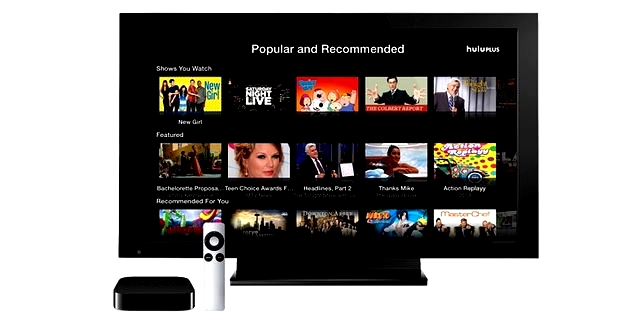
Smart TVs can be hijacked using a $250 antenna
Smart TVs are the latest product to be exposed to dangerous vulnerabilities that can be exploited by burying malicious code in signals sent to the connected devices and even able to attack other devices in the home.
Researchers have found a loophole in the technology used in the advanced sets that allows attackers to hijack TVs in a straightforward way, leave no trace, and do anything that the owner of the TV can do.

Less than a third of attackers account for 80 percent of comment spam
You don't need to spend very much time on popular websites and forums to encounter the curse of comment spam, adverts or links embedded in fields intended for reader interaction.
Comment spammers are most often motivated by search engine optimization, using a busy site's comment fields and guest books to get views for advertisements and malware distribution. A new report by enterprise security specialist Imperva takes a close look at comment spam and looks at ways that companies can combat it.
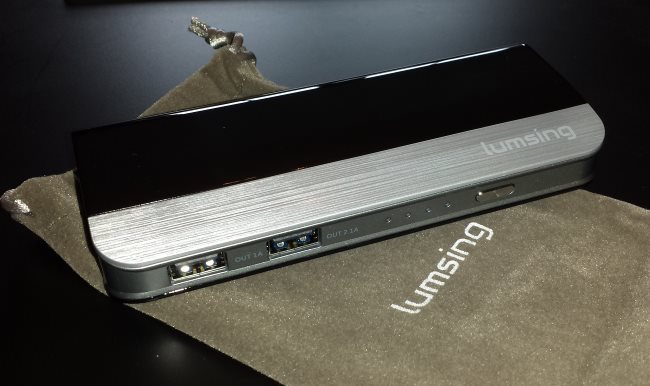
Lumsing's sexy 'Harmonica Style' battery pack delivers power on the move
Battery packs may not be the most exciting or sexiest gadgets on the market, but the LUM-008-01 Power Bank from Lumsing has a good stab at changing things. But stabbing isn’t the first thing that comes to mind when picking up this battery pack for the first time. Yes, the manufacturers "Harmonica style" description is fairly accurate but this is a unit that is rather weightier than the handheld instrument favored by blues and folk musicians. The mass of 236g (8.3oz) coupled with the way it nestles in the hand brings to mind a form of cudgel; this is a battery pack that could double as a murder weapon. Maybe that's just me... I should probably evaluate it for what it is.
Let's cut to the chase. This is a battery pack. There's a limit to how animated one can get about such a device, but Lumsing's offering gets off to a great start by being so easy on the eye. It's good to look at, and it also feels good in the hand. Style drips from every port. In all there are three ports: one USB input for charging the unit itself, and two outputs for charging other devices such as mobiles and tablets. There's one low powered 1.5 A port and one rated at 2.1 A so there's scope for charging all manner of devices.

Queen's speech proposes life sentences for cyber criminals in the UK
Edward Snowden is on the run, living in exile as a means to evade the long arm of US law. The United States seems keen to have him prosecuted for leaking documents that have arguably put national security at risk. He acted in good faith, but has been branded a cyber criminal. Today in the UK, the Queen gave her annual speech -- well, it's really a speech written by the government, but dear Liz reads it out so she gets to call it hers -- and she revealed that cyber criminals could face life sentences for their endeavors, and that existing punishments for digital crimes cold become harsher.
Singled out for particular attention are those "cyberattacks which result in loss of life, serious illness or injury or serious damage to national security, or a significant risk thereof". Those committing such acts could be put behind bars for life. But the proposals do not end there. The aging Computer Misuse Act could be updated, so that criminals that cause "a significant risk of severe economic or environmental damage or social disruption" incur a 14 year term compared to the current 10.
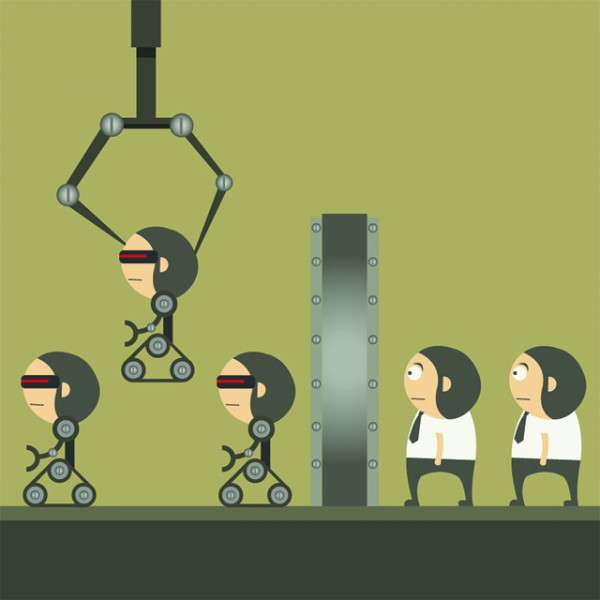
The new industrial revolution -- machines rise up to become our equals
The Internet of Things is just the latest buzzword that is being used to push all manner of products. Let's cut to the chase -- it's just about "stuff" (other than obvious things like computers and phones) connecting to the internet. Nothing more than that. But this dismissive-sounding definition is not meant to undermine the importance or the significance of the IoT. We've spent the last 20 years or so getting used to the idea of accessing the web, harnessing what it has to offer, exploiting it in various ways and finding all manner of methods of using it to make life easier, more entertaining, and more profitable. The evolution of the Internet of Things sees this taken to the next level.
We are on the cusp of a new industrial revolution. Many would say that the wheels are already in motion. The tired -- very, very tired -- example of what the Internet of Things is about, is the prospect of owning a fridge that will be aware of when you run out of milk, and then either alert you or place an order on your behalf. This is a very simplistic view of things, but it is the communication between devices that will be the hallmark of things to come. Inter-device communication, or machine-to-machine (M2M) connectivity. Devices that can be left to their own devices (ahem) are approaching in ever-growing numbers, and there are advantages to be gained.

Dirty desktops and titillating tablets -- the browsers you use to get a porn fix
Porn has always been big business, and online porn accounts for a staggering proportion of web traffic. The availability of always-on internet connections in the home, and near blanket use of internet-enabled mobile phones and tablets, means that it is now easier than ever to get a porn fix if you feel the urge. But have you ever wondered how all of this porn is being accessed? Well… wonder no more! Porn site (you don’t say!) PornHub conducted research after Gizmodo expressed an interest in seeing which browsers were most used by consumers of porn, and the figures make for interesting reading.
It perhaps comes as no surprise that desktop browsers prove the most popular. Some 51 percent of Pornhub's traffic comes from people using desktop computers. But, without wanting to put too many unpleasant images in your head, this leaves 49 percent of porn perusal that is enjoyed on mobile phones and tablets. You know, those devices that are easily transported to a quiet room and are rather easier to hold in one hand than a laptop...

Google offers End-To-End encryption with new alpha Chrome extension
Today, Google took the wraps off a new security tool for Chrome users. Currently available as an alpha release, End-To-End is an extension for Google's browser that offers... well... end-to-end encryption for data arriving in and departing from Chrome. As this is only an alpha version, the extension is not currently available in the Chrome Web Store, but Google has made the code available so the privacy-conscious and security-minded can take it for a test drive.
Based on OpenPGP and a newly developed, JavaScript-based crypto library, End-to-End can be used to encrypt, decrypt, digitally sign, and verify signed messages. Google is keen to receive feedback -- discover a problem and you could cash in, thanks to the Vulnerability Reward Program. In a post on the Google Online Security Blog, Stephan Somogyi, Product Manager, Security and Privacy explains that "we recognize that this sort of encryption will probably only be used for very sensitive messages or by those who need added protection. But we hope that the End-To-End extension will make it quicker and easier for people to get that extra layer of security should they need it".
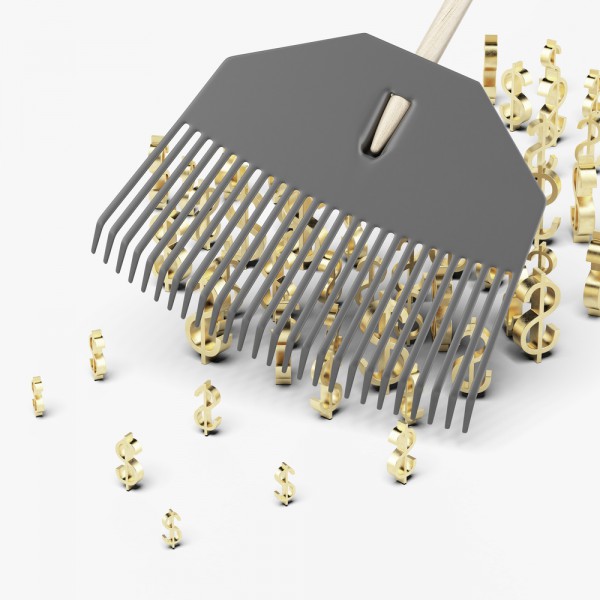
Apple opens the door to Bitcoin and other virtual currencies
Yosemite! Woo! iOS 8! Yay! New way of programming! Huzzah! These were the obvious highlights of Apple's WWDC keynote yesterday, but as the dust settles there are some additional interesting tidbits emerging. As this was a developer conference, it should come as no surprise that the announcements and revelations have the most immediate impact on developers -- but things will also filter down to users. One change that was not given any fanfare at the WWDC is an alteration to Apple's App Store Review Guidelines which paves the way for virtual currency support.
The guidelines themselves are surprisingly easy to read -- this document is nothing like an EULA! But if you'd like to cut to the chase, jump to 11.17 in the "Purchasing and currencies" section. Here you'll find the advice that "Apps may facilitate transmission of approved virtual currencies provided that they do so in compliance with all state and federal laws for the territories in which the app functions". There is no reason that this possible virtual currency support should not include Bitcoin, although the currency has not been specifically mentioned.

Reset the Net shows a groundswell of opposition to the NSA
Internet heavyweights such as Reddit, Imgur, BoingBoing and the WikiLeaks Party are joining forces to encourage internet users to take control of their privacy. Reset The Net is a campaign that flips the virtual bird at the NSA by inviting people to make use of privacy and encryption tools to keep themselves protected online. Also involved are such names as Greenpeace, Amnesty International and the Electronic Frontier Foundation, and the campaign is gathering momentum as internet citizens find themselves increasingly disillusioned by the post-Snowden world.
We have already seen an upsurge in the use of online encryption, but this has been largely employed by those who are more technically minded. The Reset the Net website asks web users to make a pledge: "On June 5, I will take strong steps to protect my freedom from government mass surveillance. I expect the services I use to do the same". Reset the Net is not an end in itself, but more of an awareness-raising campaign that aims to educate people as much as send a message to the NSA and its ilk.
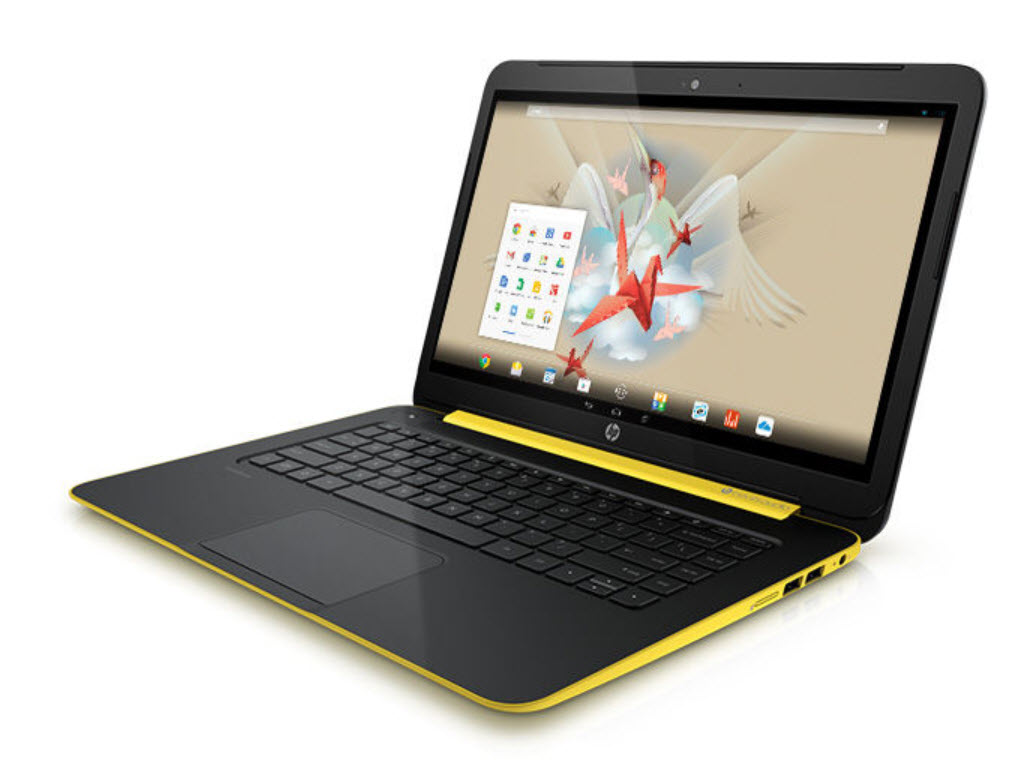
HP wants you to forget Chrome OS and embrace the Android laptop SlateBook
At the cheap end of the laptop market, there isn’t really all that much choice at the moment. Chromebook has the bargain basement side of things covered, but this is not an OS that works for everyone. Android is, by quite some way, the most popular operating system on phones and tablets, so it makes sense that it should also prove popular on a laptop, right? This is what HP is hoping, at least, as it launches its new SlateBook, a 14 inch, touchscreen laptop that runs Android.
Launching July 20, the SlateBook has a price tag of $399 and includes a full-sized keyboard in addition to a 1080p touchscreen. As this is a device running Android, it should perhaps come as no surprise that battery life is fairly high. The quoted nine hours is fairly impressive and this is being touted as an entertainment device. To back up this claim, in addition to the longevity of the battery, four speakers from the Apple-acquired BeatsAudio provide what is described as "the best-sounding, richest audio on a notebook".
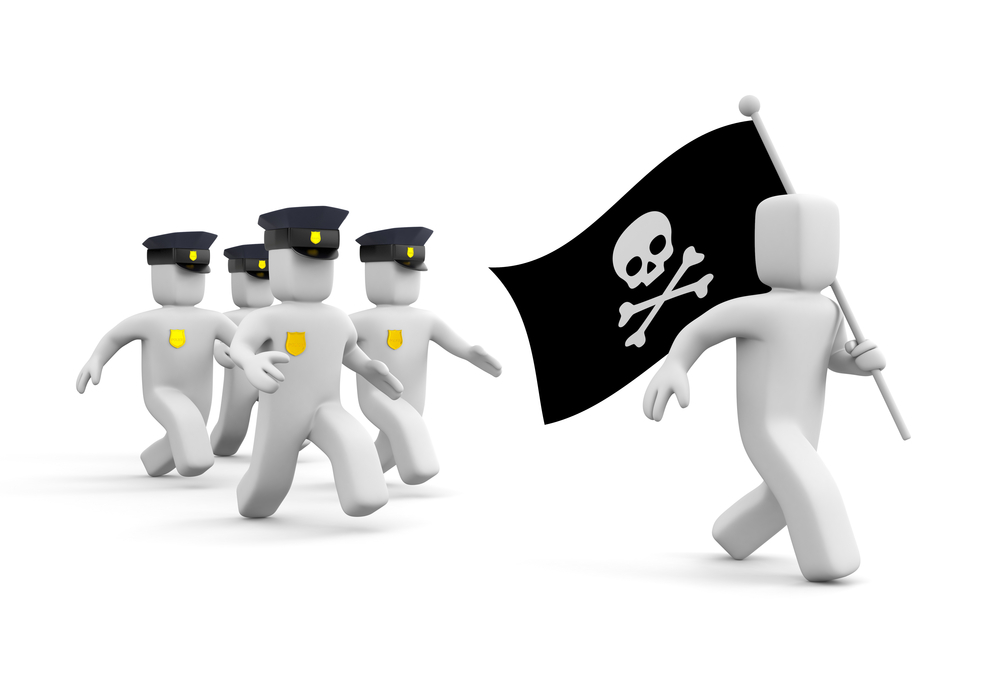
Pirate Bay founder arrested as Demonoid returns from the dead
The Pirate Bay saga is one that has been running for a number of years now, and the latest chapter sees one of the founders arrested in Sweden. Peter Sunde had been on the run for two years after failing to make an appearance having been sentenced to two years in prison. He had been handed an eight month term for aiding and abetting breach of copyright laws, although those associated with the site have long-maintained that they should not be held responsible for the sharing of copyrighted material as no data was stored on the site.
Sunde had been sought by Interpol and his arrest coincided with the eight-year anniversary of the police raid of Pirate Bay servers. He had been living in hiding in Berlin, but having family in Sweden meant that he often returned to the country. Torrent news website TorrentFreak reports that the arrest was a joint operation between Swedish and Polish law enforcement agencies.
